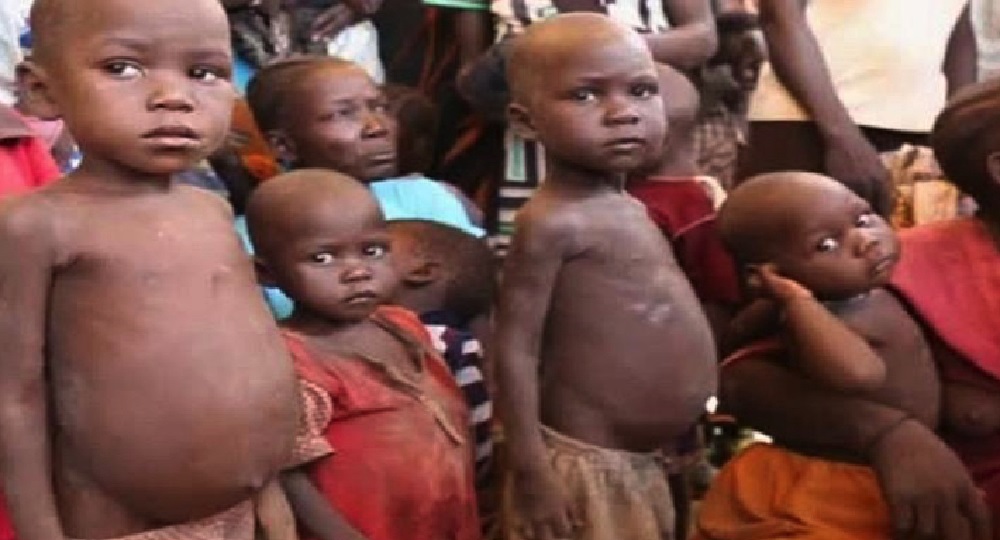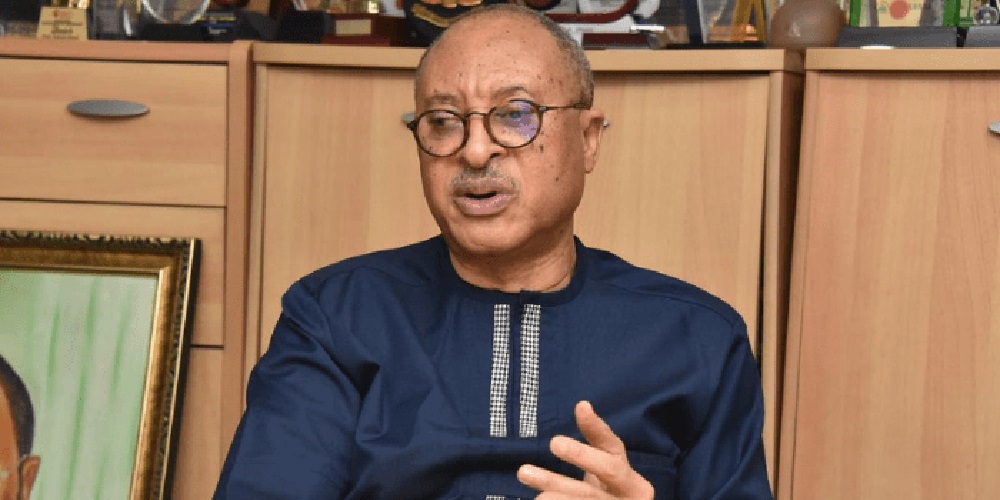News
Climate change to adversely affect learning, report reveals

*Says, 2.2bn children at risk by 2050
By Francesca Hangeior
Rising temperatures and heat waves are not only threatening our environment but also disrupting the learning environments of millions of children worldwide.
A report by Global Partnership for Education, GPE, in conjunction with the World Bank has said.
The report is titled: Too hot to learn: The impact of climate change on education.
It went further to state that by 2050 almost every child in the world – nearly 2.2 billion children – will be exposed to frequent heat waves.
Therefore, it called for investing in climate-resilient schools and education systems, saying it is essential to ensure that every child realises their right to learn in a safe and conducive learning environment.
“Climate change has psychologically and physically affected our learning. It is also making the school environment unhealthier day by day,” Prakash,18-year-old student in Nepal, said.
Heat waves, exacerbated by climate change, are becoming more frequent and intense. This poses a significant educational challenge, particularly in regions with inadequate infrastructure and resources.
Schools in many parts of the world, especially in low- and middle-income countries, lack proper ventilation, cooling systems, and access to safe drinking water. This can make classrooms unbearable and potentially hazardous during extreme heat.
When temperatures soar, governments often face the dilemma of keeping schools open or closing them temporarily – disrupting children’s continuity of learning.
It added that in May 2024, heatwave in Pakistan forced schools to close, leaving 26 million, or more than half of the country’s school-age children, out of the classroom. In April, South Sudan closed its schools for 2.2 million students when temperatures soared to 45 degrees Celsius (113 degrees Fahrenheit). Thousands of schools in Bangladesh, India and the Philippines have also had to close due to extreme heat.
In recent years, these heat waves have arrived earlier, become more severe and lasted longer, leaving schools unprepared to cope.
In humanitarian contexts, the impact of heat waves on education becomes even more urgent. Vulnerable communities grapple with multiple challenges of climate change, conflict and forced displacement, making access to quality education a critical lifeline for children.
Even if students continue attending classes during heat waves, their education will likely suffer. High air temperatures and lower hydration levels are known to affect children’s ability to concentrate, retain, and process information, impacting overall school achievements.
In South Asia, 78 per cent of students surveyed said that their studies had been affected by climate change. Most cited either an inability to concentrate during heat waves, damage to their school buildings, or disruptions to their journey to school.
As heat waves become more frequent and last longer, the need for urgent action grows stronger.
Recent data suggest that action is urgently needed to make education systems climate-resilient: in 2023, a UNICEF survey found that among 40 countries assessed as having high or extremely high risk of children’s exposure and vulnerability to the impacts of climate change, only a third of such countries reported concrete government action on greening education.
Recognising the profound implications of climate change on education, governments, with support from UNICEF, the Global Partnership for Education and other actors, are working to strengthen the climate resilience of children, education personnel, schools, and education systems.
Greater attention on preparedness efforts can protect marginalized populations, especially children.
This includes improving school infrastructure to ensure that educational facilities can withstand extreme weather conditions and disasters, including structural improvements such as better ventilation and cooling systems.
Efforts are also underway to upskill teachers on climate-resilient practices and emergency preparedness, empowering them to support students and communities during crises.
Additionally, governments are implementing policy reforms and investments that integrate climate resilience into education sector planning and decision-making.
These initiatives promote green skills and engage children and young people in climate-smart solutions and local climate advocacy.
These efforts are urgently needed, as UNICEF survey data show that a mere 8 percent of countries report providing climate education to at least 70 percent of children and offering professional development opportunities to teachers in climate education.
News
500 lawyers set to defend Utomi against DSS

A professor of Political Economy, Pat Utomi, on Friday said he is receiving support from some Nigerians who are planning to mobilise 500 lawyers to defend him against the Department of State Services.
Utomi revealed this in a post on X.
“It’s energising (that) some want to put together 500 lawyers to defend me against the DSS,” he said.
The DSS had sued Utomi over his alleged plan to establish what he calls “a shadow government” in the country.
According to the suit filed at the Federal High Court in Abuja, the DSS prayed the court to declare the move an attack on the Constitution.
The professor of Political Economy, who is the 2007 presidential candidate of the African Democratic Congress (ADC), was sued as the sole defendant.
In the suit filed on May 13 by a Senior Advocate of Nigeria, Akinlolu Kehinde, the agency contended that the move by Utomi was intended to create chaos and destabilise the country.
The DSS had argued that the planned shadow government was not only an aberration but also constituted a grave attack on the Constitution and a threat to the democratically elected government currently in place.
However, Utomi said he was gladened by the solidarity he had received from across the country.
“I am heartened by messages of solidarity from across Nigeria on this shadowy business of chasing shadows of shadow cabinets. Reminds me of the Nigeria I used to know. I want to thank all.”
The planned shadow cabinet was greeted by reactions from several Nigerians, including a former presidential candidate and activist, Omoyele Sowore, who said it was an ineffective symbolic gesture that lacked real-world impact on Nigeria’s pressing challenges.
Speaking during an interview on Inside Sources on Channels TV on Sunday, Sowore argued that the idea of a shadow cabinet was futile in a country where the existing government is itself opaque and largely unaccountable.
He said, “Well, how do you replace a shadow government with another set of shadowy governments? I would not begrudge anybody who thinks of solutions that can bring awareness to the people.
“But I do not think that setting up a government with names of people who call themselves a shadow government makes any difference.”
News
Police Speaks on Viral Video of Young Men Arriving in Ibeju-Lekki

The Lagos State Police Command has issued an official statement addressing a viral video that sparked concern on social media, showing a large group of young men reportedly arriving in Lagos and gathering near the Dano Company premises in Ibeju-Lekki.
According to the Command, the incident occurred on May 14, 2025, prompting swift deployment of officers to the scene for investigation. The police confirmed that the individuals—eighty-nine in total—had arrived from Katsina State to work as labourers at the Dangote Refinery in Lekki.
A contractor affiliated with the refinery informed the police that he personally recruited the workers for legitimate employment, a statement corroborated by the refinery’s Chief Security Officer (CSO). All individuals were cleared for entry and are expected to reside within the refinery premises.
The police confirmed that thorough checks were conducted, revealing no incriminating materials. The labourers also presented valid National Identification Numbers (NINs), which were successfully verified by the authorities.
Commissioner of Police, CP Olohundare Jimoh, urged the public to refrain from spreading unverified information that could incite panic or tension. He assured residents of the Command’s continued commitment to public safety and swift response to potential threats.
Police Public Relations Officer, CSP Benjamin Hundeyin, signed off on the statement, reaffirming the Command’s dedication to transparency and law enforcement in Lagos State.
News
Finland charges Simon Ekpa with inciting terrorism

Finnish prosecutors on Friday said they had charged a man with inciting terrorism online who a media report identified as Nigerian separatist leader Simon Ekpa.
Finland’s National Prosecution Authority said in a statement that it had charged “a Finnish individual in a case involving suspected public incitement to commit crimes with terrorist intent and participation in the activities of a terrorist group.”
It added that the alleged crimes had been committed in the city of Lahti between 2021 and 2024 and were related to the suspect’s efforts to establish Nigeria’s Biafra region as an independent state.
The prosecution authority did not name the accused but Finnish public broadcaster YLE identified him as separatist leader Simon Ekpa.
Ekpa — who claims to lead the Biafra Republic’s government in exile — was detained in November.
According to the prosecution authority, the accused remained in custody and denied the charges.
Ekpa is known as a self-proclaimed leader of a faction of the Indigenous People of Biafra (IPOB), which is pushing for the independence of Nigeria’s southeast, where a bloody civil war was fought in the late 1960s.
The dual Finnish-Nigerian national has also been a local representative for Finland’s conservative National Coalition Party in the city of Lahti, north of Helsinki, where he has served on a public transport committee.
When Ekpa was arrested, Finnish authorities also requested that four other people be remanded in custody on suspicion of financing Ekpa’s activities.
On Friday, the prosecution authority said the prosecutor had decided to drop charges against four others in the case due to a lack of evidence.
Ekpa has been the subject of several of AFP’s fact checks in recent years over false claims and disinformation he has made in independence campaigning.
AFP
-

 News10 hours ago
News10 hours agoINSECURITY! Ten killed in Plateau over attack linked to cattle rustling, farm destruction
-

 Economy13 hours ago
Economy13 hours agoSEE Current Black Market Dollar (USD) To Naira (NGN) Exchange Rate
-

 Health18 hours ago
Health18 hours agoLassa fever claims 138 lives in 2025, cases spread to 18 states – NCDC
-

 News17 hours ago
News17 hours agoNkechi Blessing Confirms Break Up With Lover
-

 News17 hours ago
News17 hours agoCourt nullifies Edo LG chair, deputy’s impeachment
-

 News4 hours ago
News4 hours agoPolice Speaks on Viral Video of Young Men Arriving in Ibeju-Lekki
-

 Entertainment13 hours ago
Entertainment13 hours agoChris Brown Reportedly Nabbed in Manchester
-

 News6 hours ago
News6 hours agoFCTA unveils FCT Lottery Regulatory Office















